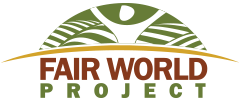 As COVID-19 spreads around the globe, it’s hitting hardest those who were already in poverty. Before the pandemic, cocoa farmers in West Africa were struggling, earning an average of just $0.78 per day. That kind of extreme poverty is no accident. The global cocoa trade is built on paying low prices to farmers and extracting billions of dollars in profit each year.
As COVID-19 spreads around the globe, it’s hitting hardest those who were already in poverty. Before the pandemic, cocoa farmers in West Africa were struggling, earning an average of just $0.78 per day. That kind of extreme poverty is no accident. The global cocoa trade is built on paying low prices to farmers and extracting billions of dollars in profit each year.
Just one company, Hershey Chocolate, managed to extract $1.15 BILLION in profits in 2019. That’s more per share than an average farmer earned in a week. Even before the COVID-19 pandemic, cocoa farmers were already in crisis. And chocolate companies were posting year on year of growth and higher profits, based in part on the low prices that have left cocoa farmers struggling.
It’s high time Hershey’s takes responsibility for the cocoa farmers they depend on. A recent paper from the VOICE Network lays out what’s needed:
- Support farm families’ livelihoods with a basic common income for April, May, and June
- Use existing supply chain mechanisms to provide healthcare education and resources to farmers and their families.
- Specifically consider how resources will include women, children, and those most vulnerable in communities.
Paying farmers a basic income for April, May, and June would allow them to stay home, as people everywhere are being called upon to do, and prioritize the health and safety of their families and communities. In Ghana, COCOBOD, the government cocoa board, says that the pandemic has already lost the country a billion dollars in cocoa revenue. Falling prices and buyers closing their doors hits small-scale farmers hard. The economics of the chocolate business mean that small-scale farmers have no such thing as a rainy day fund.
The Coronavirus is Novel. Chocolate Companies Focus on Profit is Not
In 2016, cocoa prices crashed. The cocoa and chocolate industry posted strong profits as the cost of their main ingredient plummeted. Meanwhile, cocoa farmers and producing countries lost an estimated $4-5 billion dollars. Most chocolate companies happily passed that windfall on to their shareholders and did nothing to support small-scale farmers. The result? A further transfer of wealth from farming communities to Big Food companies, continuing to grow an imbalance that originated alongside the transatlantic slave trade. That’s not just an accounting problem. In recent years, despite companies like Hershey making big pledges, child labor is up 10%. Deforestation in chocolate-growing Ghana increased 60% over the previous year in 2018, a bigger percentage increase than anywhere else in the world (the runner up, Cote d’Ivoire is the other main chocolate-producing country—together they account for approximately 70% of the world’s cocoa supply). The results of sustained low prices and underinvestment are clear. While the global COVID-19 pandemic may be unprecedented, there is all too much precedent for cocoa companies prioritizing profits over farmers.
Hershey’s Should Pay Farmers Fairly—Not Just Give to Charity
Time and again, Hershey’s has responded to the disaster unfolding in their supply chains with more public relations and sustainability marketing. Yet the impact for the families that grow their cocoa lags behind their claims of “Shared Goodness.”
It’s been nearly two decades since they pledged to eliminate child labor in their supply chains—and instead, last summer, a Washington Post expose showed just how many children still do dangerous, dirty work on cocoa farms. In 2012, Hershey committed to buying 100% “certified” cocoa by 2020. That vague goal was in response to activists calling on them to commit to buying fair trade cocoa and cleaning up child labor in their supply chains. Instead, they chose to use low-bar certifications such as Rainforest Alliance that have no minimum price requirements for farmers—and have themselves been exposed for failing to address child labor.
From Kit Kats to Kisses, Hershey’s brands make up 45% of the chocolate market in the U.S. If they choose to do right by cocoa farmers, it could make a big difference—every day and as they face the COVID-19 pandemic.
Yet once again, Hershey is on track to do little and market it big. So far, Hershey’s response to the pandemic has been inadequate. They have pledged $2 million in product to U.S.-based Convoy of Hope plus $100,000 to the Red Cross. These charitable contributions can’t hide the fact that these dollars are earned off the backs of farmers. And those figures represent just a fraction of their profits – 0.05% to be precise. As cocoa prices fluctuate and Ghana and Cote d’Ivoire each project losses of revenue from cocoa in the billions of dollars, it is clear that that money is just a drop in the bucket.
Hershey’s should not wait for farmers to end up destitute. Instead, it is time for them to take action to ensure the safety of farmers’ health and livelihoods.
Photo Credit:“Energy Boost” by trekkyandy is licensed under CC BY-SA 2.0
Charisse Kenion, @charissek https://unsplash.com/photos/tWe8ib-cnXY


Time to support the deserving cocoa farmers without whom you wouldn’t be as successful as you are.
You are just a evil as nestles was with their formula they gave to new mothers an Africa but then they couldn’t afford to buyout and started diluting and babies couldn’t thrive and then died. all in the name of greed no compassion for those you are exploiting. would you pay your own children or grandchildren that little not enough to live on. How do you live with your self and families. no heart just a greedy one with no love or compassion. I will not and haven’t been buying your product as had read about you and your poor should say no real pay. corruption isnthe name you pay with your mother must be rolling over inner grave for your horrible greed and no companion.
I personally haven’t heard of this topic lately, but it is important to do such acts of terror. The cocoa farmers are already suffering from poor pay and trying to survive every single day but support child labor, and stopping for over 20 years and several promises is just disappointing. It depresses me that brands like KitKat hire children and pay minimally. They donated money to organizations in the Covid19 months, but it is clear that it was only a small compensation, since money was supposed to go to farmers.
I personally haven’t heard of this topic lately, but it is important to do such acts of terror. The cocoa farmers are already suffering from poor pay and trying to survive every single day but support child labor, and stopping for over 20 years and several promises is just disappointing. It depresses me that brands like KitKat hire children and pay minimally. They donated money to organizations in the Covid19 months, but it is clear that it was only a small compensation, because the money was supposed to go to farmers.
I’ve told everyone not to buy Hershey’s products
I would like if you email a copy of this
I want to mail a copy to all the big stores especially W-mart
Thank you
Kenneth Berger
I am an advocate for fair trade chocolate as well and have been teaching my students about fair trade certifications and how to be a more conscious consumer, often targeting Hershey with letters and emails. Yesterday in a pharmacy I bought a Reese’s cup and Hershey bar with a rainforest alliance label on it. Does anyone know how long they have been selling these fair trade chocolate bars? I consider this a big win for us activists.
Hi Daryl,
Those organic + Rainforest Alliance certified Reeses were launched in Spring 2021. Unfortunately, I would not consider it a win for activists–and have heard similar from cocoa farm representatives. Just for starters, Rainforest Alliance doesn’t include minimum prices for farmers. Rainforest and Hershey are also currently being sued for child labor in cocoa supply chains and their failure to address it.
For more on why Rainforest Alliance is not the same as fair trade, see this blog post: https://fairworldproject.org/rainforest-alliance-is-not-fair-trade-2/
And you can hear directly from cocoa farmer representatives on why they feel Rainforest Alliance is inadequate in my interview here (we actually ended up doing a whole podcast series sort of on your question!): https://fairworldproject.org/podcast/season-1/episode-1/
Anna